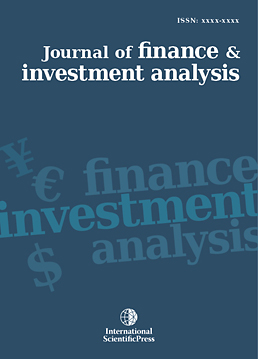Journal of Finance and Investment Analysis
Capital Market Efficiency: The Nigerian Experience
-
 [ Download ]
[ Download ]
- Times downloaded: 11735
-
Abstract
The platform for the exchange of financial instruments is the capital market, operated by profit-driven investors and regulators. The achievement of profit goals by investors at a minimal cost to them and market regulators shows the efficiency of the market. Secondary data obtained on value of traded shares as a percentage of market capitalization (stock turnover ratio) on Nigeria was tested using the two-tail sign test for small samples. Result of binomial statistic of the sign test at á=10 was 0.0669, greater than á/2=0.05; thus we accept the null hypothesis that Nigeria’s capital market is operationally inefficient; discouraging share trading and listing of securities in the Nigerian capital market and security trading. To improve on the efficiency of the Nigerian capital markets making it attractive to firms seeking listing, capital market policy makers in Nigeria should initiate policies that minimize stock transaction costs to increase listings, stock market activity and stock turnover.
